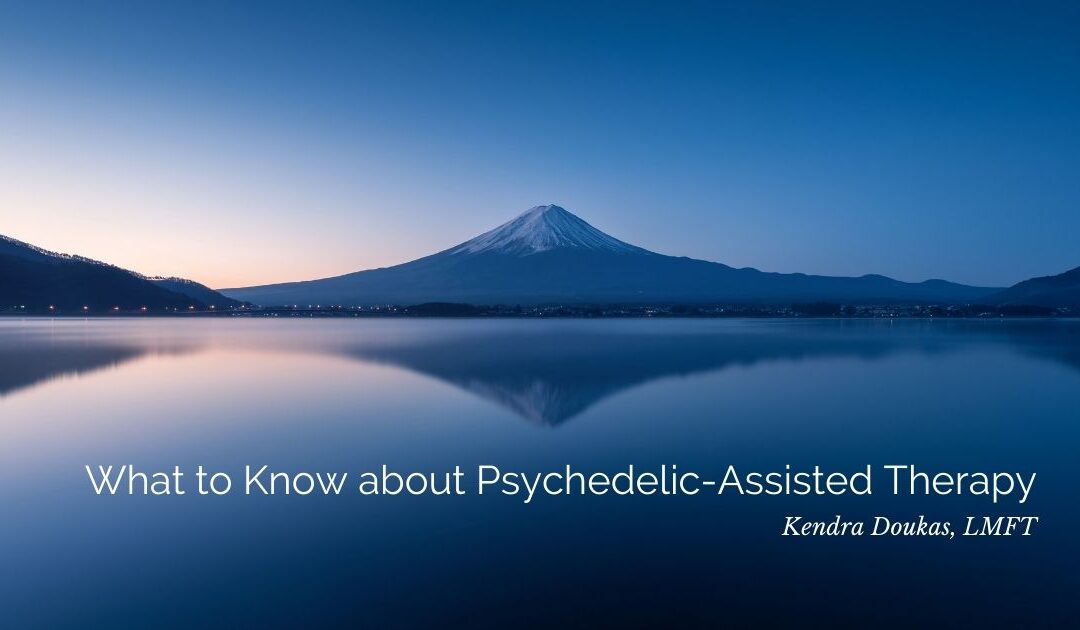Psychedelic-assisted therapy is getting a lot of attention, with Ketamine clinics popping up all over the place and a lot of buzz and hype around the use of psychedelics in mental health treatment. Articles are being released in many large mainstream media outlets about the magic of psychedelic use in mental health. Many of us at The Catalyst Center is currently undergoing extensive training in this area so that we might be able to use psychedelic-assisted therapy as an additional tool to help our clients process and heal from trauma, depression, and anxiety. The research about the role of psychedelics in a vast array of mental health issues is compelling. Studies are currently evaluating everything from using psychedelics in smoking cessation to healing from complex PTSD and attachment trauma. It is still very much the “wild, wild west” as the world figures out legality, best practices, and how to honor the backgrounds of many of these medicines.
What you should know:
If you are considering the use of any psychedelic medicine, whether above board or underground, talk with your therapist and care team. Research is clear that the integration work is such a powerful agent of change for people. Letting your therapist know what you are doing is essential so that your therapist can help you integrate the insights learned from your trip or journey into your daily life and practice. For example, you might have an insight from a psychedelic experience that you need to connect more and deepen your relationships. That would be a beautiful insight but bringing that up with your therapist and working with your therapist to deepen what that means to you and find action steps for actually cultivating that in your life will be where actual change occurs.
- There are many different psychedelic medicines and ways to use these medicines. Currently, the only legal psychedelic is Ketamine. Many practices and stand-alone Ketamine clinics are arising, all with very different protocols and ways of using Ketamine to bring healing. It is essential to do your homework if you pursue Ketamine to assist in your mental health treatment. There are undergoing studies regarding MDMA (Ecstasy) and psilocybin (Psychedelic Mushrooms), and many uses of these psychedelics are in the process of clinical trials. Many cities have already “decriminalized” MDMA and psilocybin, and it seems that the eventual legality of these substances is somewhat inevitable.
- Set and Setting are essential. Two concepts of “set” and “setting” are huge in the world of psychedelic-assisted work. “Set” refers to a person’s mindset as they are undergoing the use of psychedelics. “Setting” refers to the environment in which the person takes the psychedelic. Using a psychedelic in a party scene or addiction is vastly different from using psychedelics in the safety of a therapy session or a clinic. Similarly, using psilocybin out in nature with supportive friends is also very different than how psilocybin is being used in clinical trials. Research is clear that the “set and setting” dramatically impacts a person’s journey with the medicine and how effective the treatment is in aiding mental health healing and sustaining change.
Be wary of anyone using psychedelics as a cure-all. While there is a lot of hype and compelling research about the positive effects of psychedelics, they certainly should not be touted as a cure-all. Many people can likely benefit from their use, but we highly recommend that the decision to use psychedelics as a part of mental health treatment is well thought out, discussed, and considered. One cannot just sit back and take these drugs and expect change. Instead, these medicines can be a tool along with other pieces of healthy mental health care. Again, the integration work in therapy after a psychedelic experience is crucial for deepening the meaningfulness.
While the rebirth of psychedelics as medicine is exciting, it is also important to be well-informed and consider safety in your curiosity about how psychedelic-assisted therapy might benefit you. There is much more to cover about psychedelic-assisted therapy beyond this quick “Things to Know” article. Further your knowledge by visiting our blog in the coming months as we release more articles discussing the topic of psychedelic-assisted therapy.
Photo Credits:
Photo by Kelly Sikkema on Unsplash
Photo by Wonderlane on Unsplash


 If you are considering the use of any psychedelic medicine, whether above board or underground, talk with your therapist and care team
If you are considering the use of any psychedelic medicine, whether above board or underground, talk with your therapist and care team Be wary of anyone using psychedelics as a cure-all
Be wary of anyone using psychedelics as a cure-all

